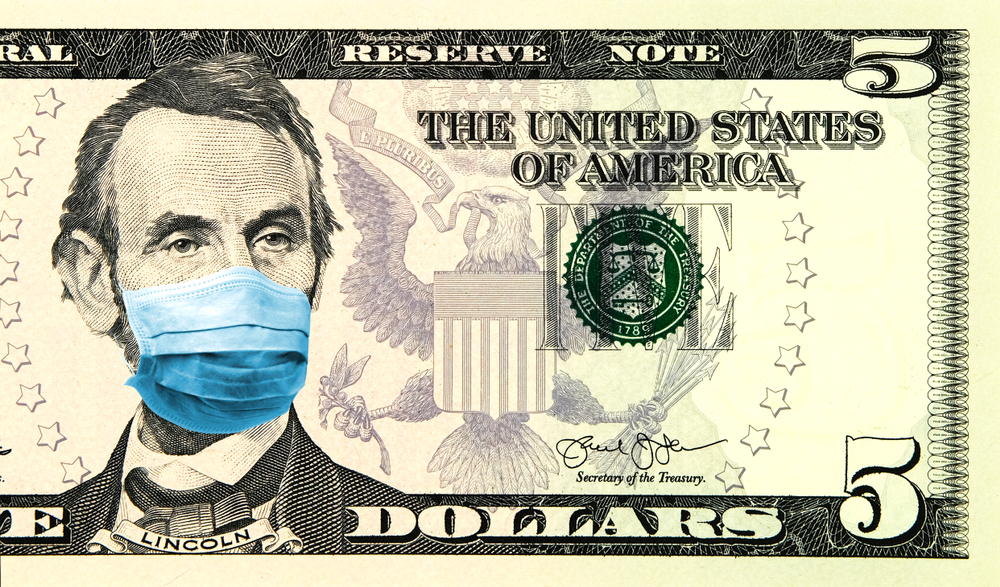Coronavirus is the new epidemic that emerged in China last January and quickly spread to other countries, generating high levels of alarm and causing concern around the world. Coronavirus isn't just affecting health: in recent days, the pandemic has led to a series of sharp falls in global stock markets.
The situation in China…
The impact on the global economy will certainly be significant, as China is, more than ever, the largest engine of global growth, far greater than the United States, Japan, and Europe combined. While Chinese GDP growth was expected to range between 6% and 6.50% in 2020, this indicator already appears to be undergoing significant revision. Official Chinese data show a 27.8% drop in manufacturing production in February , compared to 51.3% in January. Chinese exports have collapsed—year-over-year—by approximately $50 billion , due to shipping restrictions and order cancellations.
To date, almost all workers have officially returned to the workplace after the long Chinese New Year holidays, extended by companies due to the epidemic. This isn't much comfort, as production has decreased more than expected: upon reopening, companies found themselves with canceled orders. Urban public transport has only resumed at 47.8 percent, and coal consumption in the manufacturing sector is at 62.8 percent of its level in the same period a year ago. Supply sources have slowed significantly, delivery times are unpredictable, and companies are looking at their inventories, if any.
…and the consequences for the rest of the world
Raw materials
China is the world's largest buyer of raw materials . Australia, Brazil, and Russia (the top three commodity exporters), for which China accounts for over a third of their total exports, will be hit hard. China's crude oil demand has also declined due to a drastic drop in traffic, prompting refineries to cut production (the crude oil war between Saudi Arabia and Russia is currently dragging down oil stocks, ed.), contributing to the price of crude oil falling to its lowest level since early 2019.
Intermediate goods
In many sectors, we're hardly discovering this now, China is now a key supplier of intermediate goods (used by other countries as inputs for their exports). Consider electronics, telephones, computers, furniture, and furnishings , where China now assembles many of the consumer goods destined for export internally. In the city of Wuhan alone, there are five megafactories producing LCD and OLED screens; the negative consequences will be felt more acutely in other Asian economies , such as South Korea, but also Taiwan, Vietnam, Malaysia, and Singapore, which are heavily dependent on imports from China.
Consumer products
With economic growth and significant improvements in living standards, China has become a huge consumer market in this millennium. Starting with luxury goods , where Chinese spent $115 billion in 2018 (a third of global spending), the data are very worrying. Beyond purchases made in China, those made abroad during travel have disappeared and will remain so for an unpredictable time. In services, tourism is undoubtedly the hardest hit sector at the moment, along with international transport and logistics . The forced immobility of Chinese tourists, which is generating a negative impact on global tourism, will necessarily extend to transport, accommodation, catering, retail and financial services. The majority of countries have restricted travel to and from China , resulting in harmful effects for Asia in general (especially Hong Kong, Thailand, Vietnam and Singapore); conversely, Europe will suffer (Italy at the top of the list), not receiving the profitable seasonal tourist flow from China. But the automotive sector will likely be the one to pay the highest price. China is at the heart of the supply chain: it plays a significant role both as a supplier, as a market, and as the location where the majority of components are located. China is the world's largest automotive market, both as a producer and a consumer; Wuhan is also home to one of the main automotive manufacturing hubs, with 10% of the country's production capacity. Car sales in China fell by 92% in the first half of February, according to data from the China Passenger Car Association (CPCA). The rest of the world is certainly not laughing: the shortage of supplies from China is halting production worldwide. Hyundai-Kia, Nissan, General Motors, Jaguar-Land Rover, and Fiat Chrysler Automobiles have all suspended, or threaten to do so shortly, production at many major plants.
The possible ways out
The coronavirus epidemic is showing us how fragile a globalized economy can be when it's built on such high dependence on a single country, a supplier for so many key sectors. The consequences we're facing are many. Has the Chinese economy become so indispensable to the rest of the world (attempts to isolate it or isolate itself—read: Trump's America First—seem doomed to fail), or is a progressive reduction in economic interdependence between China and the rest of the world still possible? Two major factors would seem to support the latter theory. The inshoring of manufacturing activities (which began before the trade war) has further accelerated since the epidemic ; many companies will tend to reorganize their supply chains and certainly won't want to find themselves in similar situations in the future, once the risk of contagion has passed. The second reason is that China itself wants to reduce its technological dependence on more advanced countries.
You may also like
The High Rent Dilemma for Italian Students: Challenges and Solutions
The issue of high rent prices in Italy presents a daunting challenge for university students, limiting their access to suitable living accommodations. This article explores the multifaceted causes of this problem, examines its impacts on students, and proposes a variety of solutions to alleviate the financial burden on students, including governmental initiatives, university housing projects, and community-based approaches.
Decorating Your Home Without Waste: Practical Tips for the Living Room and Bedroom
Decorating your home can be an expensive undertaking, but with the right tools, you can create welcoming and functional spaces without breaking the bank. In this article, we explore practical tips for decorating your living room and bedroom while saving money, with an eye on design and quality.
The Best Sun Loungers of 2025
Exploring the most popular sun loungers of 2025, this article delves into the technical features, pros and cons, pricing, and innovative highlights, providing a detailed comparison to help consumers make an informed decision.
Air Fryers: A Kitchen Revolution or Just a Passing Fad?
Air fryers are gaining popularity as a healthy and versatile cooking tool. But do they really live up to expectations or simply a passing fad? This article explores the technology, benefits, limitations, and expert opinions on these appliances.


